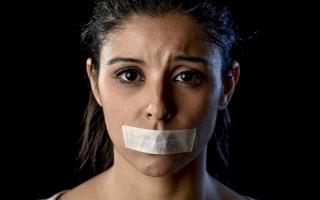
Gender-Based Violence: What it is and how legislation helps to protect victims
Every year, 16 days of activism takes place from 25 November to 10 December and is a campaign towards no violence against women and children. The purpose of this campaign is to highlight the negative impact violence has in an attempt to help victims of such violence. Although this campaign runs for 16 days, Government urges everyone to continuously act to safeguard against this type of abuse.
Gender-based violence (“GBV”) is one of the biggest problems that South Africa faces and affects women and girls regardless of their age, race and social circumstances. GBV stems from a history of deeply rooted gender inequality and is essentially violence that is directed against a person because of their gender. Although GBV can be directed towards both men and women, the majority of victims are women. Gender role expectations and unequal power relationships between men and women are the most significant underlying factors that contribute to this problem faced in South Africa.
Although GBV is most commonly in the form of physical violence, such as assault, it can also be other forms of abuse against women and includes sexual assault, emotional and psychological abuse, financial abuse and so on.
GBV is a human rights violation and the impact it has is far reaching. Victims of GBV not only have to deal with the psychological trauma but also the physical and emotional damage it causes. This, inevitably, may have an impact on all facets of their life, including their career, family life and their ability to live in a society without fear.
Unfortunately, victims of GBV sometimes fear to report the violence towards them. However, the law is there to protect them and they can obtain a protection order or lay criminal charges against their perpetrators.
South Africa already has a legislative framework in place aimed at addressing GBV. If the violence occurs between persons who are in a relationship, a protection order can be applied for under the Domestic Violence Act. Other legislation includes the Protection from Harassment Act and the Prevention of Combatting of Human Trafficking in Human Persons Act.
In the spirit of continually combating GBV, the Government is ever willing to reform existing laws, introduce new ones and to initiate programs to protect the women and children of South Africa from abuse. These programs include a victim empowerment program committed to intensify and accelerate efforts to achieve the elimination of all forms of violence against women and children.
More information on laws that were developed to protect victims of GBV are available by clicking here.
Did you know…
Gender-based violence does not only refer to physical violence, but also emotional and psychological abuse.
Legal content disclaimer
The information contained on this website is aimed at providing members of the public with guidance on the law in South Africa. This information has not been provided to meet the individual requirements of a specific person and LegalWise insists that legal advice be obtained to address a person’s unique circumstances. It is important to remember that the law is constantly changing and although LegalWise strives to keep the information up to date and of high quality, it cannot be guaranteed that the information will be updated and/or be without errors or omissions. As a result, LegalWise, its employees, independent contractors, associates or third parties will under no circumstances accept liability or be held liable, for any innocent or negligent actions or omissions by LegalWise, which may result in any harm or liability flowing from the use of or the inability to use the information provided.